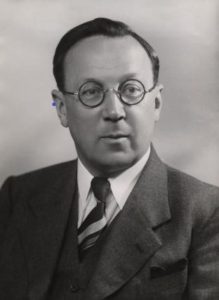
Sir Robert Watson-Watt was a British scientist and a pioneer of radar technology in the lead up to the Second World War. Often mistakenly referred to as the inventor of radar he took what was an embryo technology to create a practical system to detect aircraft. This became the Chain Home network of radar stations which ran along the length of Britain’s east coast and was an important part of the country’s air defence contributing to the RAF’s 1940 victory in the Battle of Britain.
A notable aspect of his character was his pragmatism – he was a realist and he rejoiced in what he termed ‘the cult of the imperfect’. His view when delivering to his government and military masters was:
Give them the third best to go on with; the second best comes too late; the best never comes
These days we might use the more succinct aphorism, ‘Perfect is the enemy of good’.
The adoption of Agile development within project management is often thought of as a modern invention following the publishing of the Agile Manifesto in 2001 but Watson-Watt’s approach shows us that he fully understood Agile principles even if he wouldn’t have labelled them as such.
He and his team would create a prototype to produce what we would describe as a Minimum Viable Product (MVP) – a version of the product with just enough features to be usable by early customers who can then provide feedback for future development. An MVP will create a product with minimal resources quickly to gain early feedback reducing wasted effort, accelerate learning and gain customer/user engagement. The first successful demonstration of aircraft detection by radio waves bouncing off them was on the 26th February 1935 by Watson-Watt and Arnold Wilkins in a remote field in rural Northamptonshire using a very ‘Heath Robinson’ setup and where there is now a memorial plaque.
At the end of the war, Professor E.V. Appleton made a submission to the Royal Commission on Awards to Inventors and said of Watson-Watt’s contribution to the development of radar, ‘…the biggest effort of all was being made by Watson-Watt in pleading, advocating, getting stores, masts and buildings. It was above all due to his drive and powerful advocacy that we had radar stations around our coast when war broke out… He had the vision of what it all implied, he just burned with it. [He] deserves a very substantial reward for his work in turning scientific radar into practical radar…
Today, we would recognise these qualities in every successful project manager.